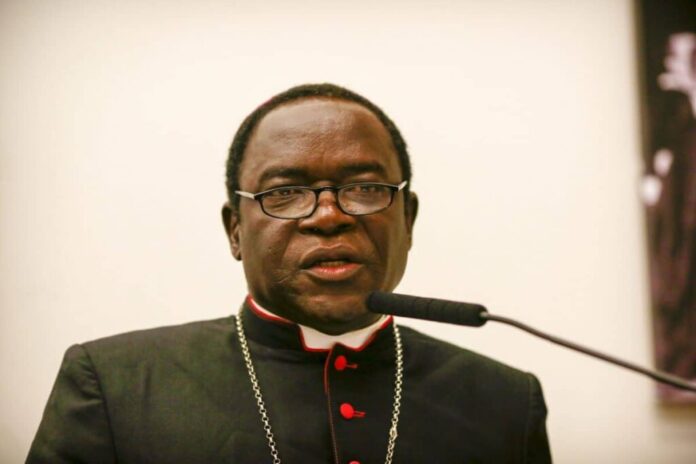Bishop Matthew Kukah, the Catholic Bishop of Sokoto Diocese, has set the record straight on the papal election process, stressing that it is driven by divine inspiration rather than political or regional interests. Speaking on Channels Television’s Political Paradigm after attending Pope Leo XIV’s inauguration in Rome, Kukah highlighted the sacred nature of the papal election, dismissing popular calls for an African Pope as misguided. He humorously said, “Let’s win the World Cup first,” emphasizing that the election is not an “Emilokan” (meaning “my turn”) affair but one guided by the Holy Spirit beyond human lobbying or politics.
Kukah shared insights on the Vatican’s global role as a moral diplomacy center, recalling how world leaders engage quietly during papal events. He praised President Bola Tinubu’s historic attendance—the first by a sitting Nigerian president at a papal inauguration—and the symbolic connection between Tinubu and Pope Leo XIV, both with ties to Chicago.
The bishop also tackled misconceptions about the Pope’s identity, noting that while a Pope can be African, once elected, he serves the universal Church and cannot be seen as representing just one region. Kukah urged African leaders to focus on good governance and self-reliance, warning that development depends on the continent’s integrity, not papal influence.
On religion and politics in Nigeria, Kukah criticized the ongoing politicization of religious and traditional institutions. He traced tensions in Northern Nigeria to colonial disruptions of traditional authority and warned against ethnic or religious entitlement in leadership selection. “We Africans like to say, ‘It’s our turn,’ but true leadership is about uniting under one law,” he said.
Kukah also highlighted the problematic political interference in traditional rulership, contrasting it with the rigorous theological training bishops undergo. He called for protecting the delicate balance between religion, tradition, and state governance, cautioning against further politicizing traditional institutions, which risks instability, as seen in neighboring countries.
This thoughtful reflection from Bishop Kukah encourages Nigerians and Africans alike to respect the sacredness of religious processes while striving for unity, integrity, and strong governance at home.


